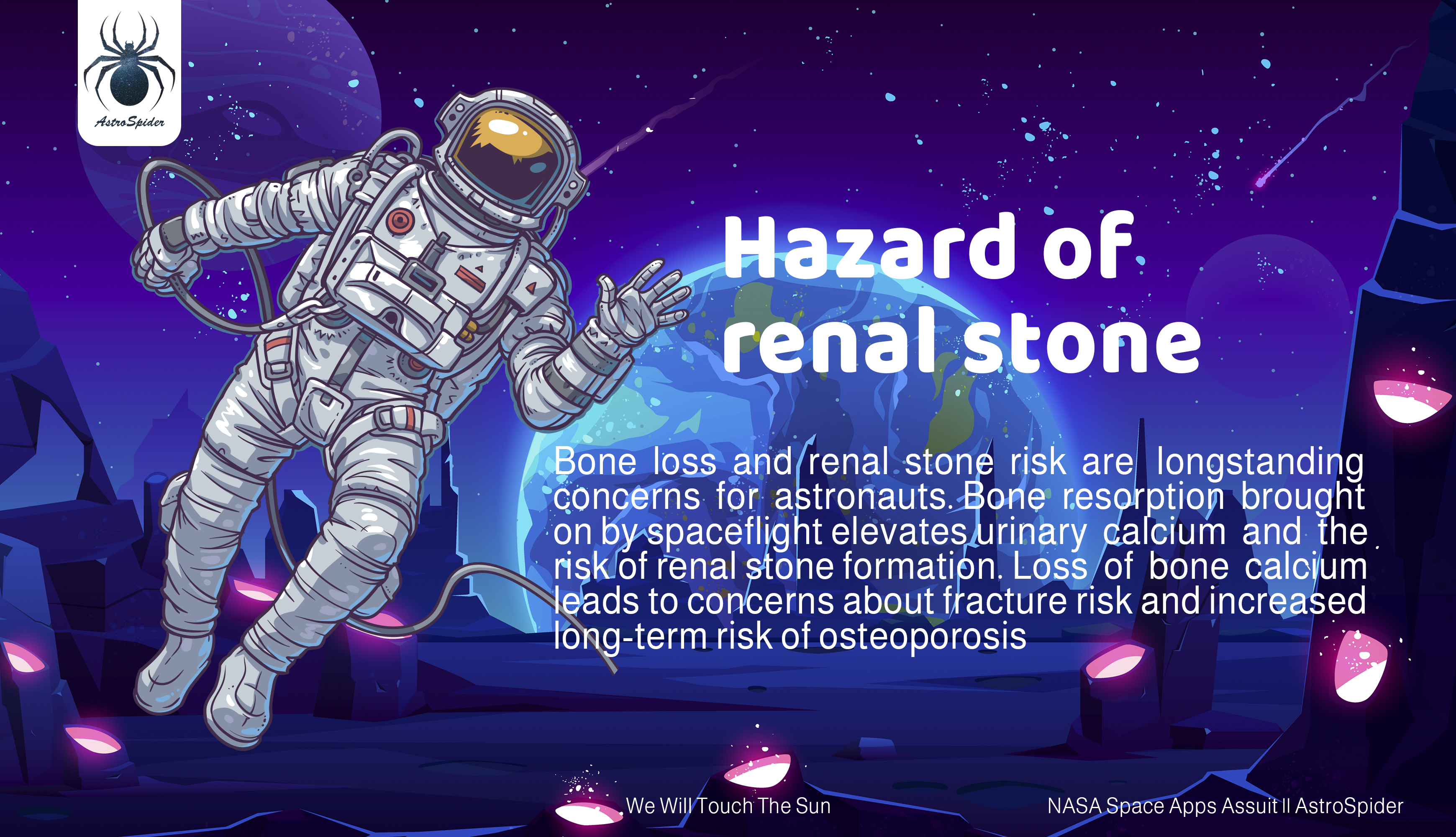
Renal stone
Given changes in urinary biochemistry during spaceflight, there is a possibility of symptomatic renal stones, which can cause renal colic (pain), nausea, vomiting, hematuria, infection, and/or hydronephrosis.
Astronauts are at risk of developing symptomatic kidney stones during and after flight. Therefore, strategies to mitigate the risks have been well identified although the ability to treat kidney stones during exploration tasks is not yet available. Studies on the ground indicate that exercise is a good countermeasure to lower urinary calcium cation (Ca2+) and that exercise also increases sweating providing an alternative pathway for (Ca2+) release; Therefore, exercise should be considered as a valid/current countermeasure.
Environmental, dietary, and lifestyle factors greatly influence the risk of developing kidney stones. Crew members who have an increased risk before spaceflight and then experience microgravity with concomitant bone loss, hypercalciuria, increased sodium in the urine and decreased urine production may have an increased risk of developing kidney stones during spaceflight.
Therefore, the best solution so far is the exercise that astronauts do during flights to get rid of excess salts in the body